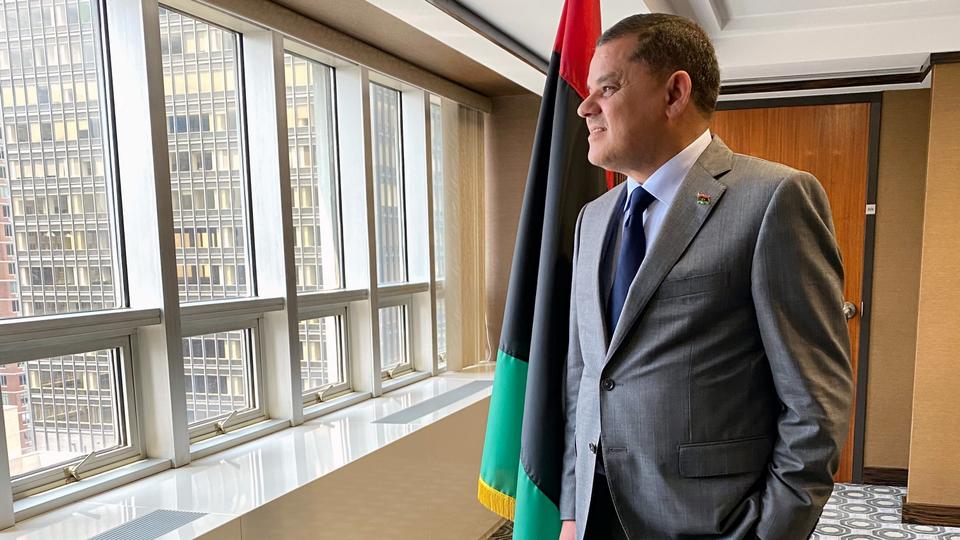Libya’s eastern-based parliament has passed a no-confidence vote in the country’s unity government, in a new blow to UN-backed peace efforts.
Eighty-nine of the 113 MPs present in the eastern city of Tobruk on Tuesday voted to withdraw confidence from the Tripoli-based administration of interim Prime Minister Abdul Hamid Dbeibah, three months ahead of planned elections, a spokesman said.
The move came after the speaker of the legislature ratified a controversial elections law earlier this month, seen as bypassing due process and favouring eastern-based warlord Khalifa Haftar.
READ MORE: Where is Libya’s unity government headed?
Calls for presidential elections to be delayed
The upper house of Libya’s parliament called on Monday for presidential elections set for December to be postponed for a year following a controversy over an electoral law.
Under a UN-brokered deal between Libya’s rival eastern and western camps, the war-torn country is scheduled to hold legislative and presidential polls on December 24.
Earlier this month, eastern-based House of Representatives speaker Aguila Saleh ratified a law for the presidential vote, but he has come under fire for not presenting a final version to the assembly for a vote.
READ MORE: Libyan warlord Haftar hires American lobbyists to woo Biden
On Monday, the head of the Tripoli-based High Council of State (HCS), Khalid al Mishri, rejected legislation which he said had been passed “without a legal vote or consensus”.
“We do not recognise the House of Representatives as having passed a presidential elections law,” Al Mishri told journalists.
Presidential elections “would not produce stability in Libya at the present time,” Mishri added.
He said the HCS proposed parliamentary elections on December 24 as agreed at the UN talks, but with another year to reach an agreement on a new constitution before setting a date for presidential polls.
“Our hands reach out for dialogue, but the HoR (lower house) can’t simply pass laws on its own,” Mishri said.










Discussion about this post